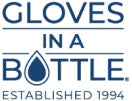
Can Hand Sanitizers Cause Eczema?
Share
Hand Sanitizers and Eczema
Certain jobs, such as working in the healthcare field may require frequent hand washing. According to the CDC frequent hand hygiene is the primary cause of chronic hand eczema among healthcare workers. Being a Registered Nurse, I have to wash my hands and use hand sanitizer countless times. I have noticed that the days I practiced rigorous hand hygiene, my skin became dry. I tried to avoid it during the situations where I could, without breaking any rules. The days I washed my hands less or used hand sanitizer less, my hands were less irritated. They were pretty much the same, compared to the start of the day. Healthcare professionals often use alcohol-based hand sanitizers. Therefore, they may further lead to drying out the skin and eventually leading to eczema. Hand soaps and alcohol-based hand sanitizers affect the natural skin oils and the skin barrier.

Hand Sanitizer vs. Hand Soap
When one washes his or her hands consistently, the skin may become dry and lead to further irritation. Therefore, one should take extra precautions to protect his or her hands. Hand soap dissolves the natural skin oils and further causes skin dryness and irritation. Hand soaps may also contain ingredients that may irritate the skin and cause more damage. Some people may also use dishwashing soaps to wash their hands. The ingredients in these soaps are also dangerous as they may dry out the skin and worsen eczema.
Alcohol-based hand sanitizers can disturb the natural pH of the skin and the skin barrier and worsen hand eczema. This allows allergens and bacteria to penetrate the skin and cause inflammation. The reaction can be so severe that it can lead to redness, itching, and peeling of the skin. Hand sanitizers contain ingredients that may sting or cause skin reactions. They may also be packed with different types of fragrances, preservatives, and alcohol. There are certain situations where one cannot avoid practicing hand hygiene. These situations include: after using the restroom, before handling food products, or during times when the hands are visibly dirty.

Protecting the Skin from Hand Hygiene Products
Through using various products you will know what is best for your skin and what is not. Make sure that you have a skin protectant in hand especially if you’re working in a field that requires frequent hand hygiene. Shielding lotions, such as Gloves In A Bottle can protect the skin from the effects of hand soaps and hand sanitizers. Gloves In A Bottle does not remove the sanitizing effects of the hand sanitizer, even if it is used after the hand sanitizer. Moreover, it stays on through multiple hand washes. You should also not wash your hands with soaps and water immediately before or after using hand sanitizer. Also, do not use hot water to wash your hands. Overall, if you can avoid the use of hand hygiene products containing chemicals and alcohol, it will prevent your hands from eczema.<.p>
